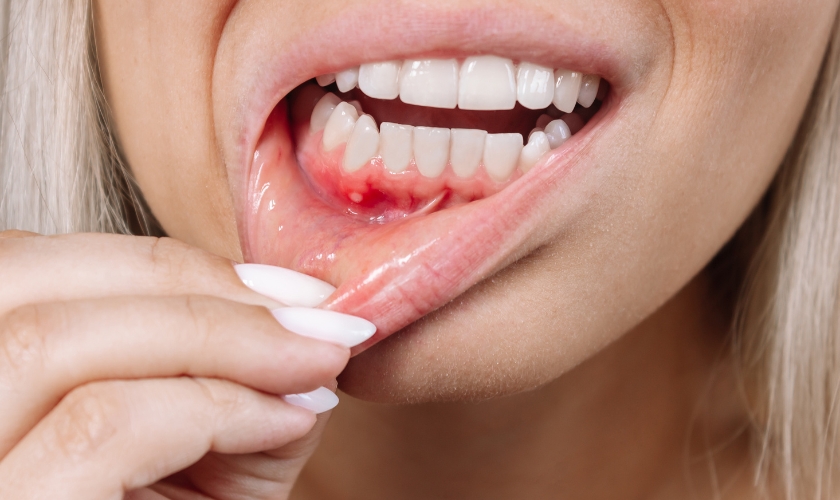What is Gum Boil & How to Treat it

Unlike a delicious low-country boil, a gum boil is definitely something you don’t want. These painful bumps on your gums can become serious if left untreated. This blog will give you the lowdown on gum boils, including their types, causes, and how to treat them.
Types of Gum Boils
Gum boils, also called dental abscesses, are essentially pus-filled bumps caused by bacterial infections. There are three main types:
- Gingival Abscesses: These are the least common and appear near the base of a tooth on the gum tissue.
- Pericoronal Abscesses: More frequent, these develop around the crown of an impacted wisdom tooth that hasn’t erupted yet.
- Periodontal Abscesses: The most common type, these form deep within the gum tissue, often in an existing gum pocket. They’re also the third most frequent dental emergency!
What Causes Them?
The culprit behind all gum boils is bacteria. The NHS tells us that poor oral hygiene, sugary treats, and trauma to the gums or teeth can all create the perfect environment for these infections to thrive. A weakened immune system can also play a role.
Periodontal abscesses, specifically, are often linked to untreated gum disease. Symptoms of this type of abscess, according to the IOSR Journal of Dental and Medical Sciences, include:
- Throbbing pain
- Swelling
- Redness and inflammation
- Tenderness in the gum
- Loose teeth
Effective management of periodontal disease treatment involves addressing these symptoms promptly to prevent further complications and promote oral health.
Treating a Gum Boil or Abscess
Letting a gum boil fester is a recipe for disaster, as the infection can spread to your jawbone or teeth. Here’s what you can expect for treatment according to Dr. Pak:
- Antibiotics: You will likely prescribe antibiotics to combat the infection.
- Drainage: Draining the pus can significantly reduce pain and discomfort.
- Tooth Removal: In severe cases, the infected tooth may need to be removed.
- Bone Surgery: For extensive bone damage, surgery might be necessary.
- Deep Cleaning: The American Dental Association highlights that if gum disease is the culprit, a deep cleaning between your tooth and gum may be needed.
Keeping Your Gums Healthy
The best defense against gum boils is a good offense –– excellent oral hygiene! Here are some tips:
- Brush your teeth twice a day.
- Floss daily.
- Limit sugary foods and drinks.
- Avoid tobacco use.
- Schedule regular dental checkups.
While gum boils can be uncomfortable and concerning, timely treatment and proactive oral care can effectively manage them. By maintaining good oral hygiene practices and seeking professional dental care as needed, you can significantly reduce the risk of developing gum abscesses and ensure your oral health remains optimal.
If you notice any unusual symptoms on your gums or experience persistent discomfort, don’t hesitate to consult your dentist. Early intervention is key to preventing complications and maintaining a healthy smile.

